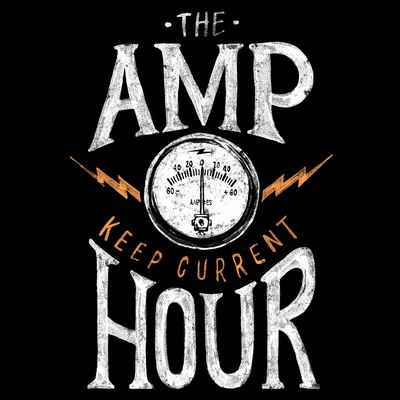Chris Gammell and Dave Jones' voices span the chasm of thousands of miles each and every week to speak to each other and industry experts about where the field of electronics is moving. Whether it be a late breaking story about a large semiconductor manufacturer, a new piece of must-have test equipment or just talking through recent issues with their circuit designs, Chris and Dave try to make electronics more accessible for the listeners. Most importantly, they try and make the field of electronics more fun. Guests range from advanced hobbyists working on exciting new projects up through C-level executives at a variety of relevant and innovative companies. Tune in to learn more about electronics and then join the conversation! Visit The Amp Hour website for our back catalog of 150+ episodes.
https://theamphour.com
#588 – Siloed Engineering with Leigh Brady
Welcome, Leigh Brady!
- Leigh got his start working in different companies in the US as young engineer from the UK as part of the Mutual Defense Agreement
- Throughout the episode we explored different themes
- Specialist vs Generalist
- US vs UK hiring
- Big vs small companies
- Defense vs Industrial companies
- UK Apprenticeship
- V curve
- System engineering
- Deriving requirements
- What is the atomic unit of a system engineer?
- F35/JSF
- Lockheed IRAD – Internal Research and Development
- Sandia National Labs
- FPGAs in defense / space
- “It’s always cosmic rays”
- Single Event Upsets
- “Triple modular redundancy” is so commonplace in designs there are now buttons in CAD to generate the logic to triplicate a circuit and have the 3 units “vote”
- Bleeding edge FPGA tools vs open toolchain
- Chris recalls Xilnx ISE with F16 on the CDs
- Long term supply contracts
- Jumping the line with defense companies in the US – “DPAS – defense priorities and allocation system“
- Big vs small
- Leigh is now back in a big company
- When should an engineer target a big vs a small company in their career?
- Training / Budgets / Sampling are better at big companies.
- Mentorship
- Phillip Salmany (Phil’s Lab) talked about the difficulties finding mentors as a young engineer out on his own.
- UK Chartered Engineer
- PE / EIT vs Chartered
- Leigh worked on nuclear weapons at a past company in the UK
- It is, unsurprisingly, a heavily regulated industry.
- IEC61508
- Part of the job is verifying non-proliferation among other countries
- Nuclear deterrant
- Chris referenced a Ukraine treaty where they gave up their nuclear weapons and ambitions, co-signed by the US, UK, and … Russia. This was the 1994 Budapest Memorandum.
- Russia control room story about not firing when they detected launches from the US. It’s widely believed that Stanislov Petrov prevented a Nuclear war
- There are never active nuclear tests anymore (good), so the majority of work revolves around testing and modeling
- Is there a “better moustrap”?
- What does it look like when new requirements come down from the gov’t?
- Did Leigh wear a white lab coat?
- We were introduced by former guest Carmen Parisi, who worked with Leigh at Wasatch Photonics
- Optics have tight timing requirements, especially around the image sensor.
- Leigh is now working on medical devices at Phillips.
- Medical isn’t as slow as Chris thought, nor is FDA planning as dreadful as Chris thought.
- “Trust but verify” on part specs
- Mapping past experiences into new job
- Chris mentioned the discussions with Charles Aylward about not having any control mechanisms or backup as a consultant.
- Leigh said there are certain scenarios where a solo consultant won’t be a good fit and that “Two people working in a team are worth three”
- You can reach Leigh on LinkedIn and elsewhere on the web as Engineer Leigh
